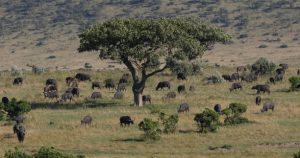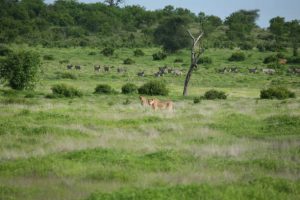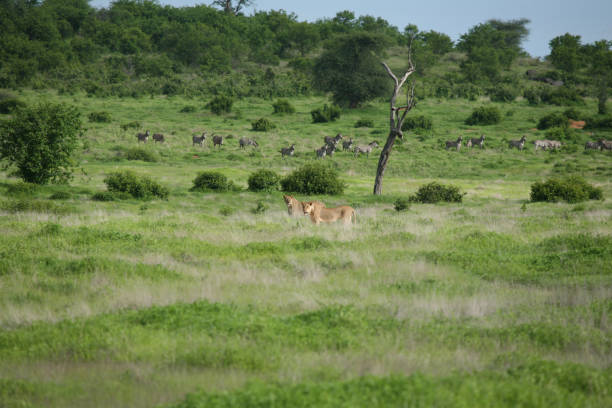
Kenya, renowned for its diverse ecosystems and abundant wildlife, remains committed to conservation efforts aimed at safeguarding its natural heritage.
Initiatives Undertaken in Kenya to Protect Wildlife
Protected Areas and National Parks
Kenya boasts a network of protected areas and national parks, including the iconic Maasai Mara, Amboseli, and Tsavo, among others. These reserves serve as vital habitats for a myriad of wildlife species, providing refuge and protection from poaching, habitat loss, and human-wildlife conflict.
Community-Based Conservation
Community involvement is integral to conservation efforts in Kenya. Community-based conservation initiatives empower local communities to become stewards of their natural resources, fostering coexistence with wildlife and promoting sustainable land use practices that benefit both people and wildlife.
Anti-Poaching Measures
Poaching remains a significant threat to wildlife in Kenya, particularly for endangered species such as elephants and rhinos. Anti-poaching units, supported by government agencies and conservation organizations, work tirelessly to combat illegal wildlife trade and protect vulnerable species from the scourge of poaching.
Conservation Education and Awareness
Conservation education and awareness programs play a crucial role in fostering environmental stewardship among Kenyan citizens. Through school outreach programs, community workshops, and public awareness campaigns, efforts are made to educate the public about the importance of wildlife conservation and the need for sustainable environmental practices.
Sustainable Tourism
Sustainable tourism initiatives promote responsible travel practices that minimize negative impacts on wildlife and ecosystems while providing economic benefits to local communities. By promoting ecotourism and supporting community-owned lodges and camps, Kenya’s tourism sector contributes to conservation efforts while enhancing livelihoods.

In conclusion, Kenya’s conservation efforts underscore the nation’s commitment to preserving its rich biodiversity and natural heritage for future generations. Despite facing numerous challenges, including poaching, habitat degradation, and human-wildlife conflict, Kenya remains steadfast in its dedication to wildlife conservation and environmental protection. However, continued vigilance, innovation, and community engagement are essential to address emerging threats and ensure the long-term sustainability of Kenya’s invaluable natural resources. By working together, Kenya can continue to lead the way in conservation efforts and serve as a beacon of hope for wildlife and ecosystems worldwide.






